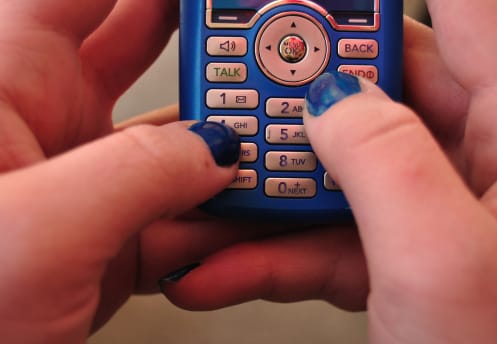2011 Florida Sexting Law Unenforceable

Many teens take nude or sexually explicit photos of themselves for their friends, especially if those friends are boyfriends or girlfriends. By some estimates, 40 percent of teens have sent or received such images. Florida lawmakers took a lot of heat when they accidentally made sexting legal because the law was unenforceable. In 2011, legislators passed a law they thought would prohibit teens from sending sexually explicit photos of themselves using their cellphones. However, just the opposite occurred; they actually made it legal.
According to a story in Slate, the law passed by legislators was supposed to stop minors from sending nude pictures of themselves or others. The first offense was a civil one, resulting in community service or a small fine. The second and third convictions would be misdemeanors and the fourth would be a felony.
The first case brought by the state under the 2011 law was the prosecution of a minor who texted pictures of her body to a classmate. Unfortunately for prosecutors, the law did not give Florida courts jurisdiction over juveniles in civil matters, the first level of offense. The case was thrown out of court because of this, and an appellate decision later affirmed the lower court’s decision.
New Sexting Law Went Into Effect Oct. 1, 2015
This year, Florida passed a new sexting law that applies to juveniles only and avoids the problems with the earlier statute. The first offense is a civil citation, the second a criminal misdemeanor and the third a felony. The law went into effect on Oct. 1, 2015. With the third offense, a young person convicted of sexting could be required to register as a sex offender for life.
Purpose of New Law
The revised law is intended to provide education and a warning for first-time offenders so that teens don’t ruin their lives by sending photos to their boyfriends or girlfriends. However, if an adult sends similar photos of a juvenile under age 18, the situation becomes quite different and the penalties much harsher.
Sexting Involving Images of Children Illegal
Although sexting is generally lawful between consenting adults, it is not when it includes images of juveniles. Here are some sections of Florida law on the subject from the Florida Department of Law Enforcement website.
- Possession, distribution, transmission and manufacture of child pornography are third-degree felonies in Florida.
- The definition of child pornography does not include images of what the statutes call “child erotica.” These are images of children photographed nude or partially nude that do not fit the statutory definition of pornography.
- People who receive child pornography as defined by the state via email, text or in any other way and who download or copy it either electronically or in hard copy could be charged with possession or distribution of pornography.
- People who download Internet images of child pornography as defined by the state could be charged with receiving and possessing child pornography.
In addition, sexting between adults and teens is illegal. One way to think about it: If it is illegal to have sex with someone, it is also illegal to send that person sexually explicit images. Someone caught doing so could be charged with violating Florida obscenity statutes.
However, this can lead into murky waters. Consider, for example, two teens, one of whom turns 18. Any sexting between this possibly long-term couple now becomes a felony; conviction could require the 18-year-old to register as a sex offender. In theory, this 18-year-old could also be charged with improper sexual contact with a minor and violation of the state’s sexual battery laws.
New Law Covers Cyber bullying
Sexting can lead to other types of charges as well. The law that went into effect in October 2015 includes a prohibition against cyber bullying, defined in the statute as “willfully and maliciously sexually cyber harassing ” another person. Cyber harassment is defined in the same statute as publish[ing] “a sexually explicit image of a person that contains or conveys the personal identification information of the depicted person to an Internet website without the depicted person’s consent …”
Cyberbullying and Texting Penalties Similar
The penalties for cyber harassment are similar to those for sexting, from a citation and fine to years in prison. The intent of the law is to prohibit teens from retaliating after a breakup. However, there could be other situations where charges of cyber bullying are completely unwarranted. If you are charged with either cyber bullying or illegal texting, it is important to seek the assistance of a knowledgeable and experienced Florida criminal defense lawyer who can determine your rights and options.
